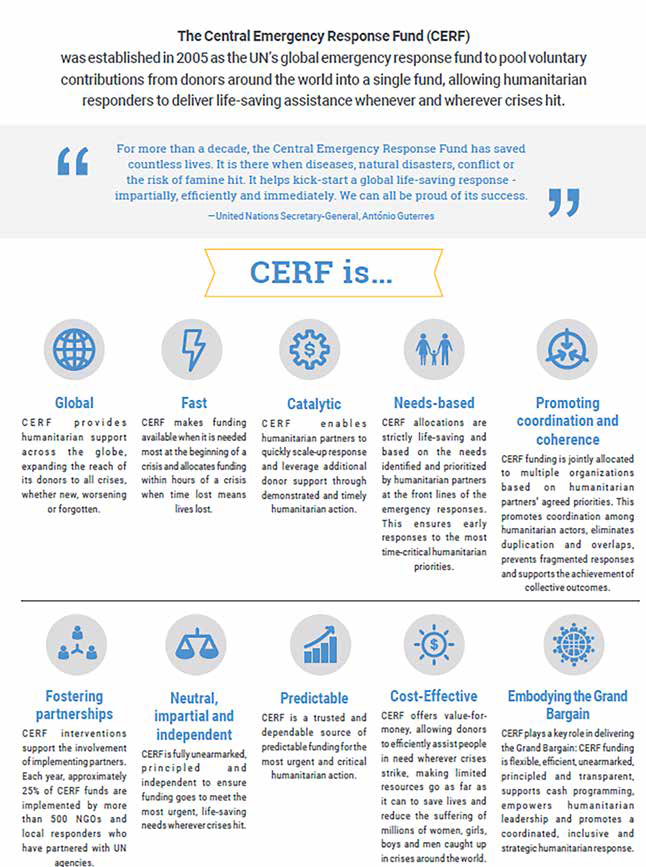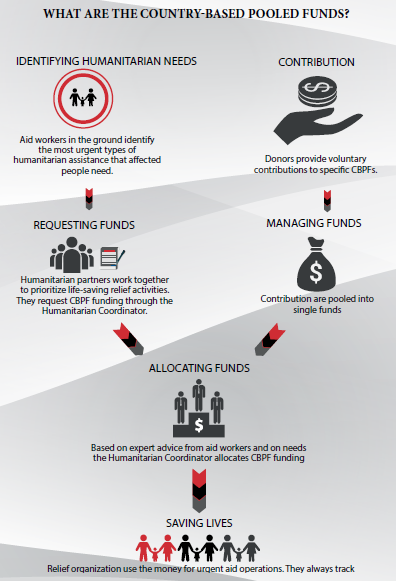MS. LISA DOUGHTEN, CHIEF OF THE UNITED NATIONS POOLED FUND MANAGEMENT BRANCH AND OF THE CENTRAL EMERGENCY RESPONSE FUND (UNCERF) SECRETARIAT, WAS THE CHIEF GUEST AT THE 2018 GLOBAL ISLAMIC FINANCE AWARDS, ON 29 SEPTEMBER IN SARAJEVO, BOSNIA AND HERZEGOVINA. THE SPEECH SHE DELIVERED HIGHLIGHTED THE POTENTIAL OF ISLAMIC FINANCE IN CONTRIBUTING TO ALLEVIATING HUMANITARIAN NEEDS WORLDWIDE, CALLING STRONGLY ON INDUSTRY LEADERS TO PARTNER WITH THE UNITED NATIONS CENTRAL EMERGENCY RESPONSE FUND AND TO SUPPORT THE OVER 200 MILLION MEN, WOMEN AND CHILDREN IN DESPERATE NEED OF HUMANITARIAN ASSISTANCE TODAY.
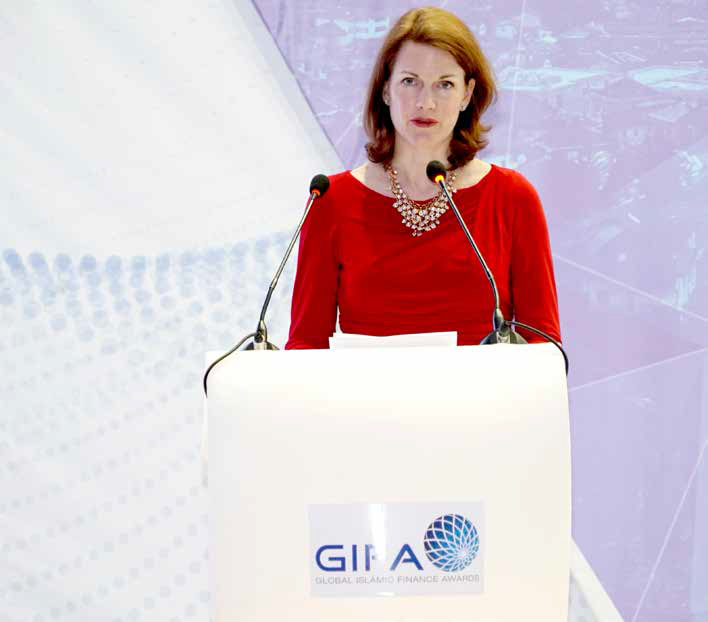
KEYNOTE SPEECH FOR MS LISA DOUGHTEN, CHIEF OF THE CERF SECRETARIAT
2018 Global Islamic Finance Awards Sarajevo – 29 September 2018
(As delivered)
Your Excellency, President Izetbegovic, Your Excellency President Guelleh, Excellencies,
Distinguished guests, Ladies and gentlemen,
Dobar dan
As-salamu ‘alaykum
I am honoured to address you as the Chief Guest of the 2018 Global Islamic Finance Awards, here in Sarajevo, Bosnia- Herzegovina; a city and country very near and dear to my heart, as I spent five years here in the early 1990s. It is in this very city that I began my career in humanitarian assistance with the United States Agency for International Development, through which I worked to provide life-saving support during the war. And then immediately following the war, I managed an emergency shelter and infrastructure repair program, which facilitated the return home of over 10,000 people displaced by the war.
Almost 25 years later, I am speaking to you today in my capacity as the Chief of the secretariat of the largest and most comprehensive emergency response fund in the world – the United Nations Central Emergency Response Fund, also known as ‘CERF’. Together, with 18 Country-based pooled funds, we mobilize and allocate over US$1.3 billion dollars every year to respond to humanitarian crises worldwide.
I have been asked to say a few words about what we do, and to introduce what is being considered by the management of GIFA as a new award – the GIFA Award for Humanitarian Assistance.

This image needs very little introduction. Last August, escalating violence and discrimination in the Rakhine State in Myanmar culminated in what would become the world’s fastest-growing refugee crisis. We have all seen the images in the media. Entire villages were burned to the ground, families were separated and killed, and women and girls were raped and brutalized.
Taking with them only what they could carry, more than 700,000 men, women and children fled their homes and walked for days, in search of safety and refuge in Bangladesh, Indonesia and Malaysia. Tens of thousands of Rohingyas – mostly women and children found temporary shelter in a Bangladeshi refugee camp near a place called Cox’s Bazar, which rapidly turned into the most densely populated refugee camp in the world.
Practically overnight, these tens of thousands of people – heavily traumatized after witnessing unspeakable atrocities – suddenly found themselves in urgent need of the most basic things that you and I take for granted – clean drinking water, food, shelter, basic sanitation facilities and medicine. The approaching monsoon season would only make things worse.
Every humanitarian emergency is unique, but all emergencies have two things in common: great human suffering, and an urgent need for resources to alleviate that suffering. Most importantly, response efforts must be fast, as time lost means lives lost. Every second counts. This is where the Central Emergency Response Fund comes in.
The Central Emergency Response Fund (known as ‘CERF’) was established in 2006 as the United Nations’ global emergency response fund. CERF pools voluntary contributions from donors around the world into a single emergency fund. CERF’s support is available immediately to enable humanitarian aid organizations to deliver life-saving assistance whenever, and wherever a crisis happens.
In addition, rather like an air traffic controller, CERF also serves as the ultimate coordinator of humanitarian assistance. CERF maximizes strategic cooperation between partner organizations on the ground, such as UNICEF, the UN Refugee Agency, and the World Food Program, thereby eliminating duplication and fostering coordination and efficiency. This way, donor funds are channelled as quickly and as transparently as possible to where they are needed most, when they are needed most.
In the case of the crisis in Myanmar, early and quick funding from CERF enabled the humanitarian response system to provide life-saving aid and protection to more than 700,000 refugees, much faster and much more effectively than would have been possible otherwise.

Of course, the crisis in Myanmar is only one of many crises we face today. Think of the people affected by the conflicts in Syria and Yemen,orthedroughtsinMauritaniaandSouthSudan.For the purpose of this audience, I have focused my examples on Muslim-majority countries, but of course disasters strike anywhere at any time, cutting across race, religion, country, class, and culture. The strength of the Central Emergency Response Fund is that it is completely impartial and neutral, and is truly an emergency fund that is available to all, and is funded by all.
The scope and scale of the crises worldwide are enormous, but more importantly, the effect that they have on vulnerable people everywhere is unimaginable. As we speak, it is estimated that there are more than 200 million people globally in desperate need of humanitarian assistance and protection. That’s more than 6 times the entire population of Malaysia or Saudi Arabia.
If we are to collectively honor the noble principle that receiving life-saving humanitarian aid is a right, and providing that aid is a duty—then there is much more that will need to be done. One step in addressing the challenge is to raise awareness for the issue.
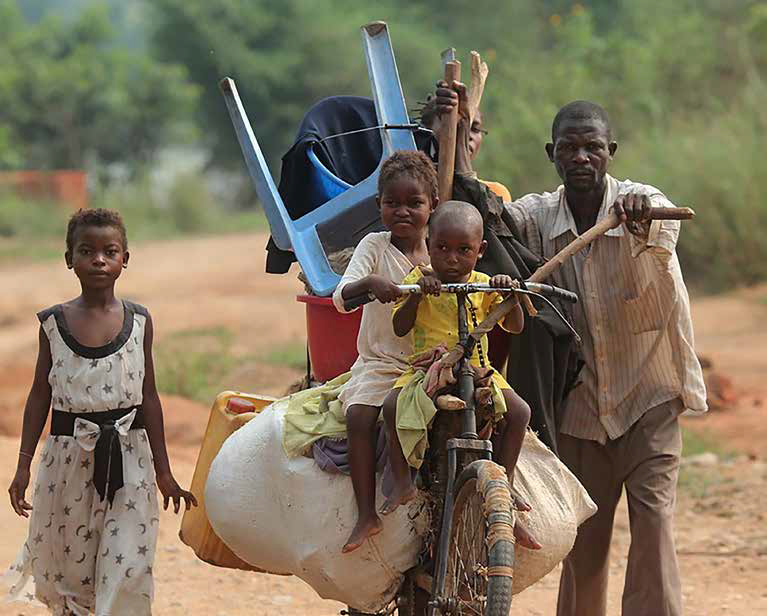
“FOR THOSE COUNTRIESTHAT REQUIRE ONGOING STRATEGIC COORDINATION AND SUPPORT, WE HAVE ALSO CREATED ‘COUNTRY BASED POOLED FUNDS’“.
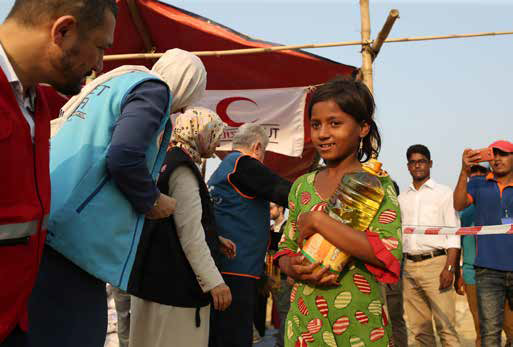
For obvious reasons, the Rohingya crisis raised significant media attention worldwide, not least in Muslim communities. Millions of people felt united with the victims in Myanmar, and went out of their way to donate time and resources in support of their brothers and sisters in need.
Not all crises receive this level of media attention, or they only reach the headlines for a very short period of time. In today’s fast-moving world, when crises are no longer front-page news, they are easily forgotten. And as a result, fundraising efforts come to a screeching halt. I am proud to say that in these cases, CERF is not only the first to arrive on the scene, but also the last to leave. It is this fact that the United Nations Secretary-General so eloquently highlights every time he speaks about the CERF.
For those countries that require ongoing strategic coordination and support, we have also created ‘Country Based Pooled Funds’. As the name suggests, our Country Based Pooled Funds operate at the country level – often working in complement to CERF, to enable strategic collaboration between local, national and international first responders. In 18 countries where the crises are long-lasting, as in Afghanistan, Nigeria and Somalia, for example, Country-Based Pooled Funds provide vital support to more than 650 local partners including the Red Crescent and Islamic Relief, as well as other nonprofit organizations.
As images speak louder than words, allow me to show you a short video that was created for the United Nations General Assembly High-Level event on CERF last week in New York:
As you will have seen, CERF enjoys the support of 126 governments, but also, and importantly, donations from businesses, individuals and foundations, also in the form of zakat.
Excellencies,
Ladies and gentlemen,
As all of you know, the world of humanitarian assistance, and the world of Islamic finance, are not that far apart. In fact, through zakat, sadaqah, and the institution of waqf, the Islamic finance sector was inherently built on the notion of humanitarian assistance. Indeed, this is the reason why I am here today.
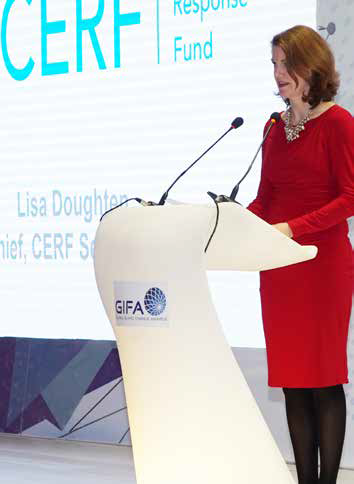
“I WOULD LIKE TO COMMEND THE MANAGEMENT OF GIFA FOR THEIR VISIONARY THOUGHT LEADERSHIP, AND THEIR DETERMINA- TION TO TURN THEIR AMBITION INTO ACTION.”
In recognition of the growing need for strategic humanitarian support and in acknowledgement of the urgent need for solidarity and collaboration to address this issue, the management of GIFA has decided to inaugurate a special award for Humanitarian Assistance. This Award aims to recognize Islamic financial institutions for their collaborative efforts to reinforce strategic humanitarian assistance.
I would like to commend the management of GIFA for their visionary thought leadership, and their determination to turn their ambition into action.
I am humbled to be surrounded today by some of the brightest and most influential leaders in Islamic Banking and Finance, who have just received the most prominent awards in the industry in recognition of their remarkable contributions to the field.
CONGRATULATIONS.
I have no doubt that through intelligent innovation, and collaborative partnerships between multiple stakeholders, including CERF and Country-Based Pooled Funds, that concrete solutions to scale up humanitarian assistance are well within our reach. Already the concept of Islamic Social Finance has laid a great foundation for such breakthroughs, as have ‘green sukuks’ and other socio-economic instruments such as zakat, waqf, and qard al-hassan.
Surely, where there is a will, there is a way.
In conclusion my key message to you today, is not about how desperate the humanitarian situation is. On the contrary, the message that I want to deliver to you today is one of hope. Hope that we will see humanitarian assistance not only as a mere responsibility but as an opportunity to deliver on our core values.
Hope that we will rise to the challenge and unite in our efforts to support our brothers and sisters who cannot survive without our help. And, hope that my words today will spark the beginning of genuine conversations about how we can build partnerships to make a real difference.
I urge you to make strategic humanitarian assistance a priority within your institutions and welcome the opportunity to speak with you about how we can create a world where no one is left behind. 200 million men, women, and children in desperate need of humanitarian aid right now – are counting on us.
THANK YOU VERY MUCH.
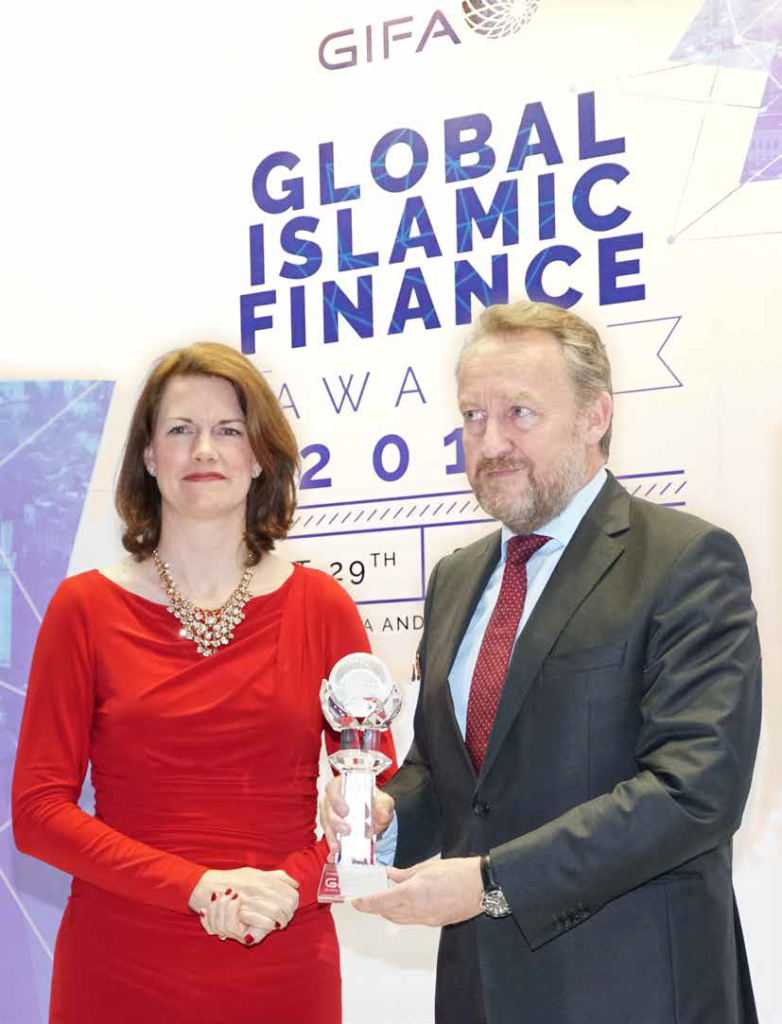
WHAT IS CERF?
